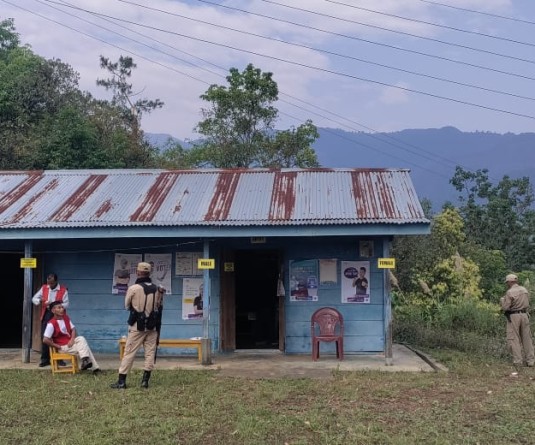
FILE - In this 1991 file photo, former Indian Prime Minister Rajiv Gandhi, center, leaning in, listens to the grievances of a man while campaigning for election in a town in central India, a few days before he was assassinated. India’s Supreme Court on Tuesday, Feb. 18, 2014, commuted the death sentences to life in prison for three men convicted of playing minor roles in the assassination of former Prime Minister Rajiv Gandhi. (AP Photo/File)
NEW DELHI, February 18 (AFP): India’s Supreme Court Tuesday spared three killers of former prime minister Rajiv Gandhi from the hangman’s noose, citing delays in the case 23 years after his assassination by a Tamil suicide bomber.
The top court headed by Chief Justice P. Sathasivam handed the three life in prison on the grounds that successive Indian presidents had taken 11 years to decide their pleas for mercy against execution. “We implore the government to render advice in a reasonable amount of time for taking a decision on mercy pleas,” Sathasivam told the court in announcing the judgement.
A lawyer for the three men -- Murugan, Santhan and Perarivalan, all known by single names -- hailed the judgement as “humane,” adding that they were now living in hope of one day being released from prison. “There is hope that the convicts will walk out of jail. The remission will be decided by the state government of Tamil Nadu,” Yug Chaudhary told NDTV outside the court. “It is time that the death penatlty is abolished in this country,” he added.
The decision comes after the Supreme Court issued a landmark judgement last month that places new restrictions on executing prisoners in the world’s biggest democracy. The top court then commuted the death sentences of 15 convicts, ruling that “inordinate and inexplicable” delays in carrying out a death sentence were grounds for commuting a sentence.
The three at the centre of Tuesday’s ruling were members of the Liberation Tigers of Tamil Eelam (LTTE), who were convicted of plotting the May 21, 1991 murder of Gandhi by a female suicide bomber. Their appeal to the president in 2000 for clemency was only rejected in 2011.
Amnesty International said Tuesday’s decision piles pressure on the government to abolish the death penalty altogether. “India must now do away with the death penalty -- a cruel, inconsistent and irreversible form of punishment that has no proven deterrent effect on crime,” senior researcher Divya Iyer said in a statement.




